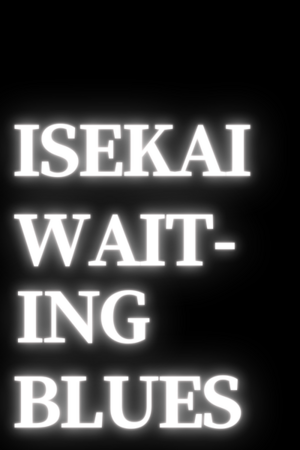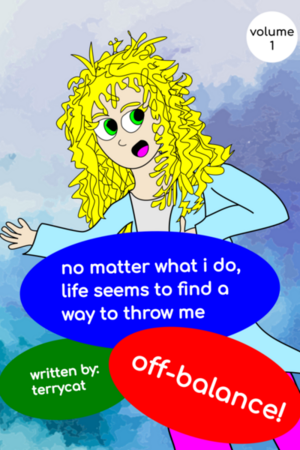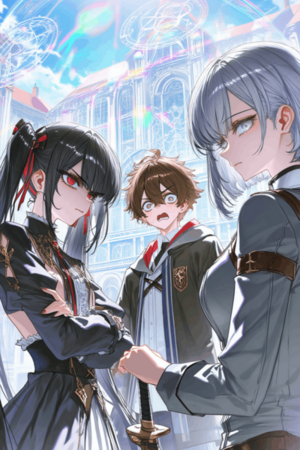Chapter 52:
52 - Isekai Waiting Blues (4)
Isekai Waiting Blues - Refusing to be Reincarnated into an Oversaturated Genre! Or, How I Learned to Stop Worrying and Love the Isekai-Industrial Complex. (Is This Title Long Enough? Shall We Make It Longer?)
"You know, Odd-kun," says Alex, "when we died, we really were in a dark age for fiction."
"Yeah," I say, not looking from from my work. "Yeah, Creative Entropy and all that junk. I remember."
"No," he says. "No, I've—I've been thinking a lot during this whole codex thing …"
"(Well, there's your first mistake: using your brain.)"
"… and I think I wanna revisit my theory on cultural stagnation."
I stop what I'm doing, and look up.
I shut my eyes, stroke my chin like I'm weighing some kind of momentous, grave decision.
Then I say: "Hmm … I'll allow it."
Alex: "The problem with my old theory, with creative entropy as the cause of isekai prevalence, is that it assumes there's no external forces at work here. But there absolutely are.
"… See, Odd-kun, there's a trinity here that's supposed to work with each other, be in harmony for the medium to advance. For art to advance. For culture to advance. … Call it the Dance of the ABC.
"A: Artist.
"B: Business.
"C: Consumer.
"Throughout all the twentieth century, and little into the twenty-first, this dance played out like it was supposed to.
"Artists did what they did. Pushed their respective mediums. Experimented. Tested how far they could take storytelling.
"Business … Now these were the publishers and editors, obviously. In the days before pure data metrics, like we have today, they had to develop tastes. They needed a sense of intuition that went beyond metrics and spreadsheets. … And yes, they had sales figures to go off, but those came after their job was done. When the book was already out.
"Consumers haven't really changed, with regard to the part they play. They decide whether or not an Artist and Business's joint product lives or dies. Before Current Year, that was their power.
"And this used to be a dance. No one party had all the power. Business had the infrastructure and marketing, and money, but they needed new and original voices to make a product. Artists had the talent, but they needed Business to take a chance on them. Consumers would choose the products that they felt deserved their money the most.
"… BUT. And this is a very important but—but Consumers did not ever, pre-metrics, dictate what the Business and Artists did. Oh, yes, they would decide which products lived or died, after they came out; but the Business and Artists themselves never went up to the Consumer and say, 'Hey, what should we make next'?"
"And you know why they never did that?
"Because you end up with what we have now.
"… Where the entire ABC triangle—it used to be a triangle—it ideally should be a triangle—has been deconstructed, and put back in the shape of a tower, with C at the top now.
"These days, Consumer sits at the top, with Business in the middle, and Artists at the very, very bottom. Never in modern history has the Artist had so little power.
"With the advancement of metrics, Business now directly asks the Consumer what they should make. Whereas pre-metrics, Business curated. They took risks. They had to develop an intution for what stories worked, and what didn't. They needed to develop taste. They needed to see where things were headed, and publish accordingly. They used to set trends. They used to make tastes. They got stuff wrong all the time, of course. But they had to gamble. They had to put their reputations on the line.
"… But nowadays, why does Business have to curate, or develop any kind of taste, or take any kind of risk, when all they need to do, is open up the rankings to N*r*u or wherever, and sort by Top Viewed, descending? There you go, that's your next big hit, publish that, call it a day, give yourself a pat on the back. Business no longer has any incentive to understand the artform. They've become a bunch of risk-averse, feckless, spreadsheet jockeys.
"The old Dance of the ABC, where no one party had all the power, was crucial for cultural and artistic advancement. And you must understand, any one party having all the power is bad.
"Because if Artists had all the power, we'd all be getting masturbatory, experimental, or incredibly niche works that could never appeal to the common person.
"If Businesses had their way, they'd be selling everybody the ultimate product, according to them, which is: absolutely nothing. … They would like nothing more than to sell you jack-shit, for the highest price imaginable. Preferably on a subscription term.
"And if Consumers had their way—(and they actually do, the Consumer currently has all the power in the modern metrics-age, since Business now follows Consumer)—they'll settle for the lowest quality that they'll still put up with. They don't want Bad, but they'll settle for Good Enough. They have no interest in aesthetic ideals like advancing the medium, or stupid shit like that. And I don't blame them—it's not their place to care about that stuff. That's the domain of the Artist. All the Consumer cares about is, 'Does the work make me feel good?' … Which they get in spades with comfort-food isekai. Comfortable, familiar. … Why would the Consumer ever ask for anything else? …
"… I mean, the start of isekai's prevalence even coincides perfectly with the rise of metrics. And streaming services. Business started paying attention to the numbers, instead of taking risks.
"And sure, it's perfectly fine if we're treating artistic works as purely commodity products. Just another product to be traded. As long as they're in the black, then it's all good. If cultural advancement and furthering of the medium is not a concern, then what they're doing isn't necessarily wrong, from a purely numbers based perspective.
"Business has completely abdicated their own responsibilities. Honestly, this literary hellscape is 100% on them. The Consumers will just do what they do. Business is the one who's become a bunch of spreadsheet-readers, relying on pure numbers rather than gut instinct.
"You know what exemplifies the current risk-averse attitude the most? You know that freaking … animated K-pop movie that came out just before we died? The one on N*tfl*x? I mean, I'm not in the target demographic, so I never watched it, but the story was that **** passed up on the movie, so they offloaded it to N*tfl*x. And **** had to watch and miss out on the profits, as the movie quickly became the most viewed all time on that platform.
"Business has become so risk-averse that they're too afraid to take a gamble on something any fuckin' idiot could've told you would be a viral hit. The biggest music genre in the world? The rabid fandom? The animation? … Oh, but they were too afraid to commit to it, because there was no exact data matching this exact product to back it up. … Ridiculous. Bunch of fuckin' spreadsheet jockeys looking at a screen. No taste. No intuition. No gut fuckin' instinct. What even role do they play anymore?
"We all have our roles to play, Odd-kun."
"Me and Valerie—well, obviously we're the Artists.
"And you're the Business, Odd-kun. Yes, you're also a writer here, but you don't care about all the stupid aestheticism shit I'm always going on about. You have a stake in the product, as you work on it with me. … But you want me to stop obsessing over each word choice, details that 99% of readers won't even notice. You care about it being more than slop, but you're not concerned about lofty ideals. You keep me in line. You slap me when my words get too obscure, too weird for audiences to get.
"Sunny and Moeka—they're the Consumers. We give them what we create, and they decide whether or not it's good or bad. But we don't let them dictate what we do. If we do—you know the old saying—they'll just ask for 'faster horses'. They react after the fact. But to give their voice too much power in the actual creation of the product—well, that's how you end up with the same twenty Diet Fantasy shows season after season.
"… As long as the contract of the Dance of the ABC is being broken …
"… We'll never get away from isekai."
*
After a short break, we get back to work.




Please sign in to leave a comment.